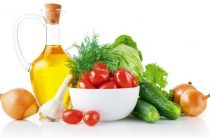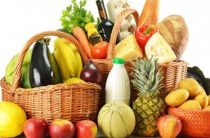With the current state of the environment, everyone had the opportunity to experience an allergy reaction on themselves. This disease lies in wait for us at every step: in food, air, sun, etc. It is a deep misconception that allergy is a purely hereditary disease. Many suffer from it already in adult conscious age. In the treatment of allergies, a hypoallergenic diet plays an important role.
Causes of Allergy
Among the causes of allergies, in the first place, it is worth noting malnutrition and an unhealthy lifestyle. The abuse of fast foods and fried fatty foods contributes to impaired liver function, which in turn provokes allergic reactions. The psychological state of the patient is also very important.
Among various foods, the following allergens can be identified:
|
|
There are quite a few allergens among medications:
- antibiotics;
- oral contraceptives;
- Preparations for the cardiovascular system;
- corticosteroids;
- Essential oils.
One of the reasons is smoking. Almost every smoker has hay fever or bronchial asthma in his luggage, as his body is constantly subject to nicotine intoxication. Pollinosis is also caused by pollen from various plants, which begin their flowering as early as March and last until September. Hay fever can also cause allergies such as allergies to household dust or cat dander.
At risk are people suffering from heart disease, kidney failure and liver problems. Children are often affected, especially infants. Pregnant women and nursing mothers should also be careful - they have a high risk of getting food allergies. It has been repeatedly proven that residents of large industrial cities are much more likely to suffer from the disease than residents of rural areas. People with chronic diseases necessarily have at least one type of allergy.
How does it manifest itself?
Each type of allergy has its own symptoms. We invite you to take a look at some:
| Allergy to plant pollen |
|
| food allergy |
|
| Allergy to the sun |
|
As we can see, all the symptoms are quite similar to each other, they also apply to other types of allergies. But there may be complications in the form of Quincke's edema and anaphylactic shock. To prevent this, you should immediately take action to eliminate the first symptoms.
General rules of nutrition for allergies
As a rule, allergic manifestations occur against the background of exacerbation of chronic or viral diseases. It is important to choose the right nutrition for yourself in order to alleviate the course of the disease. Check out the foods that you should exclude from your diet during this period:
|
|
|
You will have to limit yourself in the use of semolina, pasta and bread. In small quantities, the use of milk and sour cream is allowed. You can also yogurt with fruit additives. From meat, you can only chicken and lamb, and then boiled. Eat beets, turnips, carrots, garlic and onions with caution. Also, do not overdo it in the use of the following fruits and berries: cherries, bananas, currants, blackberries.
Enough is not a small list of recommended products during periods of exacerbation of allergies. It includes:
|
|
|
There are some recommendations that must be followed during periods of remission, so as not to provoke the appearance of an allergy again:
- Talk to your doctor about choosing the right "allowed" foods for you.
- New products for you should be tried very carefully, in the presence of loved ones - in case of an attack, they will be able to help you.
- Prepare meals for yourself only from fresh products. Cook in portions, do not leave for tomorrow, even in the refrigerator.
- Do not use preservatives and products with a long shelf life.
- Forget semi-finished products.
But these are all general rules that fall under any type of allergy. And for each individual disease, its own diet is needed, which is very different from others.
Diet for pollen allergies
With this type of disease, it is important to know what exactly the reaction occurs to. If you know this, it will not be difficult for you to choose a menu for yourself from the “right” food products. In case of allergic reactions to birch, apple, alder and poplar pollen, the following products must be completely abandoned:
- Cherries, sweet cherries, peaches;
- Nuts, apples, kiwi;
- Carrots, potatoes, celery.
The use of birch sap is strictly prohibited. Also, do not resort to treatment with various herbal remedies. If the main allergen for you is cereal pollen, then products such as wheat, rye, hercules and all products containing them are prohibited for you. It is also not allowed to drink beer, vodka, kvass, sorrel.

If you are allergic to ragweed pollen and other weeds, do not eat bananas, melons, seeds, sunflower products, coffee and cocoa. And with hay fever on quinoa pollen - beets and spinach. With any manifestation of hay fever, whether it is caused by ragweed or birch, the use of honey and propolis is unacceptable, and you should also be very careful when preparing tomatoes, peppers, cucumbers.
Diet for food allergies
The most important condition can be considered the complete exclusion of the allergen product from your daily diet. For any type of food allergy, it is necessary to exclude:
|
|
It is also important to refuse fast foods and convenience foods, which adversely affect the already irritated mucous membranes of the gastrointestinal tract. The menu should be dominated by products of plant origin. Smoked meats and salty foods are not allowed to the table - during periods of exacerbation, mudflow is your enemy.
Nutrition for milk allergy
Everyone knows that milk is the main source of calcium. But very often there are cases of allergic reactions from its use. In this case, a person will have to give up any dairy products and dishes containing it. It is also unacceptable to use butter, chocolate, fish. Beef and chicken eggs cause cross-reactions, so their use is also not allowed. You can not eat dishes cooked in breading. Any confectionery products such as muffins, cakes, pastries, ice cream, sweets, cookies are prohibited.
All these products can be replaced by their analogues, which contain a sufficient amount of calcium and phosphorus. These include:
|
|
Even milk is replaced by its soy analogue, which is in no way inferior to natural in its taste. Yogurt, cottage cheese, cheese are also made from soy. These products are used to make delicious soups, cereals, casseroles. And tofu is great for making salads. We can recommend you a great recipe using this cheese:
- You will need to take 350 g of champignons. Carefully separate the mushroom caps. Finely chop the remaining legs and mix with 200 g of tofu soy cheese. Add dill and salt to this mixture to taste. Stuff the mushroom caps with such a gruel, heat them in a pan, pour 200 g of unsweetened soy yogurt. Put in the oven for 20-30 minutes. And now your wonderful mushroom appetizer is ready.
Diet for allergies to chicken eggs and meat
With this allergy, patients lack protein and B vitamins, as well as vitamin A and iron. Patients are forbidden to use these products, as well as mayonnaise, cakes, pastries. In order to replenish the balance of microelements and vitamins in the body, it is necessary to include the following foods in your diet: rabbit, legumes, fish, nuts, seeds, vegetables, milk, cheese. Rich in magnesium are crayfish, crabs and mushrooms. And foods like avocados, seaweed, and garlic are powerful sources of copper.
Soy meat is rich in protein, which is analogous to chicken. And chicken eggs are easily replaced by quail eggs. For baking and other dishes, soy flour is often used instead of eggs. As first courses, you can use fish broths, meatballs from minced pork tenderloin, vegetable soups. Steamed vegetable and lean cutlets are perfect for cereals.
Allergy to cereals
A prerequisite is the exclusion of all dishes made from wheat, barley, rye and millet. Also, semolina is not allowed. Contraindicated are pasta, coffee substitutes, bakery products, ice cream, vodka, beer, kvass, canned food, dry soups, sausages.
Useful and possible is the use of dietary bread made from soy flour, potatoes and legumes. In order not to experience a lack of vitamins and minerals in the body, use the following foods:
|
|
With this type of allergy, it is very easy to prepare a delicious fish pate. Grind through a sieve one can of canned fish with 100 g of soy cheese. Then add one tablespoon of tomato paste, a teaspoon of lemon juice and salt. At the end, add 100 g of butter and your pate is ready.
fish allergy
In this case, everything that includes fish and other seafood is excluded from the diet. Also, supplements containing marine proteins should not be used. Smoked meats, spicy dishes and spices, marinades are not recommended. Limit your intake of coffee, carbonated drinks and strong tea.

So that the body does not experience a deficiency of iodine and polyunsaturated acids, be sure to eat the following foods:
- Cauliflower;
- Rowan, leafy vegetables;
- Meat;
- iodized salt;
- Nuts, pumpkin seeds, legumes.
Allergy menu example
| Monday |
|
| Tuesday |
|
| Wednesday |
|
| Thursday |
|
| Friday |
|











